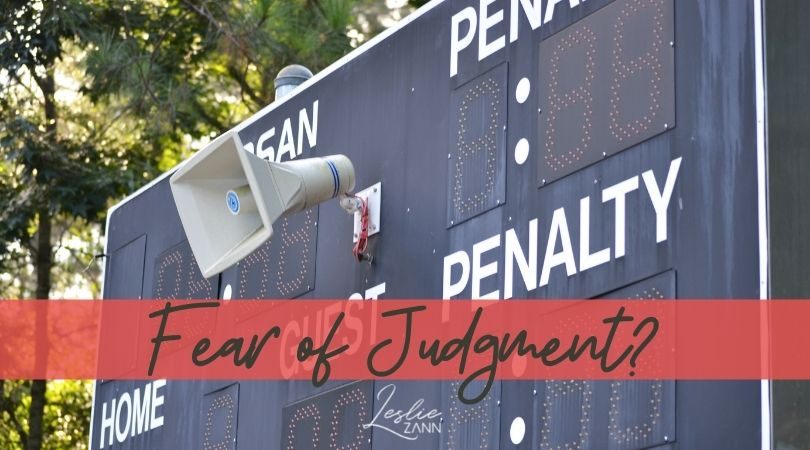How often do you find yourself wondering what people think of you? How do those thoughts influence your behavior, your words, and your actions?
For many of us, just the possibility that someone might think less of us can stop us instantly; so we abandon our good intentions. The simple thought of “What will they think?” can extinguish our fire of desire – before it can catch flame – before it can flare up and become a bonfire of success.
Why do we care so much about what other people think? There are a variety of reasons and yet, fundamentally, it’s because we want people to like us, support us, and admire us. We yearn to fit in, we long to be included; one of the gang.
“What will people think if…I get the brand-new car…move to a nicer neighborhood…enroll the kids in private school?” “What will people think if I make more money than my father? Than my husband? Than them?” For many people, fear of success is kindled by their fear of judgment and wanting to fit in. It’s all tied in together.
My memories of wanting to fit in harken me back to kindergarten. Every day in school offered new lessons in being judged; and perpetrated my reactions to those judgments. If I spoke up in class, would I be rewarded with praise – or laughed at? When I offered to share my toy, my lunch, my place in line, would my actions be enthusiastically accepted – or painfully rejected?
My social playbook at the time was full of “attention grabbing” gambits. Being the middle of three sisters I wanted to be seen and heard. Mostly heard. I talked a lot! Sure, at six years old I wasn’t at all aware of my power to choose a better response, and yet, I learned not only could I get the attention I craved, but that it wasn’t always the attention I was hoping for. And so I became overly sensitive to the judgment and opinions of others. What they thought of me really mattered.
Like me, you probably developed a social playbook for dealing with judgment very early in life. Now as an adult it’s time to consider: Are you still responding to life with the plays you created when you were six years old? Or a teenager?
This whole “inner child” idea is interesting to me. I’ve done some personal work around it and here’s what I’ve come up with for me: “I know ‘Little Leslie’ did her best as she maneuvered through her world. I can look back with unconditional love and respect for her. And yet, at this stage of my life, I don’t have to BE her! Nor do I choose to be her. I want to show up today with all my unique life experiences included in my playbook.”
You too can make that choice.
How do you respond to the opinions or perceived opinions of others? Are you responding on your terms today as an adult? Or as you did when you were a child?
Consider for a moment: Where in your life are you settling for less because of fear of judgment? What are you avoiding? How are you limiting your options? How long do you stay paralyzed after you face perceived judgment? How is fear of judgment negatively impacting your life?
Let me give it to you straight: You are enough. You can learn to welcome new experiences, put yourself out there, be vulnerable, transparent and authentic on your terms without judgment playing a role. You can find the courage to show up, just the way you are, without the fear of judgment holding you back.

